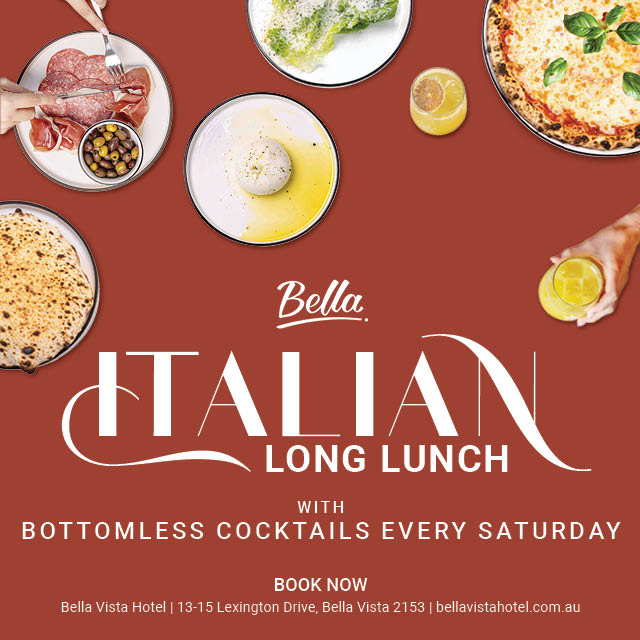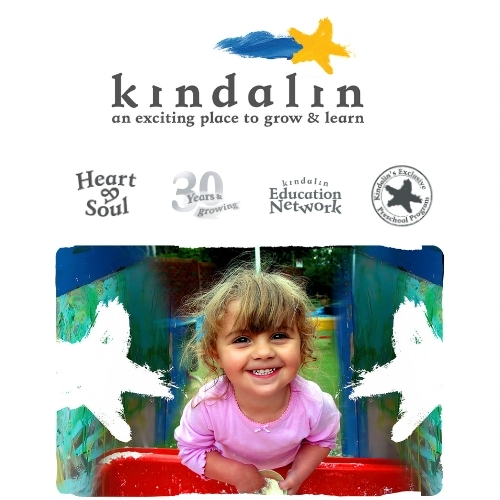With Christmas behind us and a new year ahead, now’s often the time that families are looking at their child’s recreational activities. Dance lessons are a popular activity for boys and girls. Apart from providing a creative outlet and the thrill of performance, dancing is a cardio-vascular activity that can be so much fun that kids don’t even realise they’re exercising. Like any hobby, dance lessons are also a conduit to making new friends and boosting a child’s confidence.
With so many options available in the Hills District (at least 30 and counting!), it can be hard for parents to distinguish between them all. As a qualified dance teacher and owner of a dance school for nearly fifteen years, I often see that parents don’t really know what they should be looking for. No two studios are the same so it’s not about working out which one is ‘the best’. It’s about working out which one is the best for your child. Here’s some advice and tips to help you make the right decision and to make your year of dance a great one!
Does the school offer exams?
It’s worthwhile making note of whether the exams are offered at the school you are researching.
Although not all students choose to undertake exams, for a school to offer them means they are generally obligated to employ qualified teachers who commit to continuing professional education. They must be able to teach according to a pre-set curriculum that has been developed by leading dance educators (nationally and internationally). They are willing to have their students assessed by an independent body. Basically they are willing to have their teaching quality judged according to regulated standards.
Even if exams are the last thing you want for your child, ensuring a school offers exams is reassurance about their practices. Schools are unlikely to make exams compulsory and it’s often a separate class and will not take away from your child’s dance experience.
A word of advice is to not get confused between schools offering exams through accredited dance organisations, for example Royal Academy of Dance (RAD), Australian Teachers of Dance (ATOD), Glenn Wood Tap (GWT) and those offering ‘in-house’ exams where the studio owner employs someone to examine the students. This might be a fun experience for a student but it’s not the same as something that’s impartial and in accordance with a recognised body.
Does the school consider age appropriateness?
People do have different opinions on age appropriateness so my advice is to do your research and find a dance school with values aligned with your own. Check their websites…. how do they portray their students online? View their photos on social media. If they are posting videos, is the music content adult themed? Is the choreography suggestive or too mature for your liking? It’s better to think about this before you’re handed a costume!
What facilities do they offer?
Some dance schools offer classes in their own premises and others rent local community centres or school halls. The standard of the new community centres these days can be amazing although it’s important with shared, rented facilities that they are clean and offer sprung timber floors. Additional facilities such as air conditioning, heating, ballet barres, parking and mirrors are big bonuses.
Studio owners with their own premises should have council approval and a certificate of occupancy. This is basically the tick of approval to ensure the space is fire safe and fit for use. Their floors should be sprung with a timber or tarkett overlay. Sprung floors provide a ‘soft landing’ between the floor surface and it’s foundation. Flooring laid directly on concrete can lead to chronic injury or in the event of an accident may increase the severity of the accident.
Do they make child safety a priority?
Anyone working in the dance school must have a current Working with Children check. Beyond that, there is no one overriding set of regulations required to teach dance or operate a dance studio. Dance schools self regulate. They have a duty of care but it’s up to each studio owner’s discretion to create their standards.
Is there a staff member with a current First Aid certificate on duty at all times in case of accident or injury? Is there a restriction on social media interaction between staff and students? Transparency is also important so viewing windows and CCTV cameras offers great peace of mind.
Is it established?
Dance schools can be set up with very little capital required. Anyone can rent a room in a community centre and as a result studios can come and go. My school was a new school once too, so please don’t discount a new school but it’s good to gauge whether the school will have longevity as you might be asked to invest in uniforms and dance shoes. The longer a school has been operating, the more you can trust that they are a reliable institution.
Bigger schools are big for a reason. They’re clearly doing something right as lots of people are attending and returning each year. It also means they can offer a variety of classes, age groups and sometimes operate in more than one location. They’re also able to re-invest in better facilities, attract high calibre teachers and offer more opportunities for their students. On the flip-side, smaller schools may be right for you if you’re looking for a niche market like break-dancing, acrobatics or cheerleading.
Word of mouth
Getting information from the grassroots always provides fantastic insight. Get word of mouth recommendations. One thing to consider with word of mouth referrals is to ensure that your source is looking for the same things in a dance school that you are. For instance, I have a very good friend who is always raving about her holidays. She treks here and hikes there. She loves going back to basics and getting in touch with nature. I, on the other hand, prefer a holiday where I walk no further than the distance between the bar and the pool! So I always take my friend’s hotel and destination recommendations with a grain of salt knowing that in return she would hate my preferred holiday! One person may place higher value on proximity and schedules while another may prefer a school with premium services.
Does the school have adequate administrative support?
Dance schools are usually extremely busy so it’s important that they’re backed up with efficient administration. Is there a receptionist always available at the studio or does the teacher take on the job of two people? Is there a dedicated office to answer phone calls and reply to emails? A studio that invests ‘behind the scenes’ can make a real difference to your experience as a dance parent. Do they utilise modern technology and offer services like an App? A dance school lacking in communication and organisation can lead to stress and dissatisfaction.
Fundraising
Fundraising is not always fun. Some schools require or encourage parents to fundraise. Fundraising for non-profit organisations such as schools and pre-schools is understandable but I am not asked by my local café to help out at a Bunnings BBQ so they can invest in a new coffee machine. It could be worthwhile checking their plans before you enrol… and before you end up eating a small fortune of chocolate!
Performance opportunities
Concerts. This one word can elicit great excitement in some or be the cause of much dread! I would anticipate that all dance schools put hours of effort into making the concert experience an amazing event for their students. All have different methods to ensuring their concert is a success. You should ask if there are any compulsory rehearsals for the concerts. Will you have to sew a costume or hot glue gun diamantes?
If your child can’t get enough of the stage, they might thrive in a school that arranges additional performance opportunities. Your child might enjoy performing at exciting local events throughout the year and not just the one concert at the end.
Awards
Award giving can boost confidences or can sometimes deflate a child’s sense of worth. How does the school recognise effort and achievement? Is it quantifiable or are awards given out to those the teachers decide deserve it the most? I’ve put a lot of thought into my awards system. Every child receives a trophy which has their name engraved on it. This is because I do believe that at the conclusion of the year all students deserve it. I have other awards that are not given to everyone.
However the awards I give are quantifiable which means they can be measured, they are not based on my opinion. For instance, students who reach five consecutive years of enrolment are honoured with a medal. For students who reach ten years of enrolment (this year I will have awarded more than 80 of these), they receive a large glass trophy as well as a special tribute on stage at their concert. If positive reinforcement is important to you, any studio owner will be happy to share what they have implemented in their school.
Pre-schoolers
This is the age when a lot of children start dancing. It’s good to find a school that offers a program especially designed for children of this age. Some schools may have developed their own exercises while others may use programs developed by renowned early childhood experts. Does the class have a variety of styles, props and activities to keep your 3-5 year old engaged? Is there a balance between fun and teaching the basics of technique and musicality? Your child won’t be a pre-schooler forever so what does the school offer as your little one gets older? Can the school cater for a range of ages and dance styles beyond the pre-school years?
So with all this to consider I hope you can distinguish what it is you require from a dance school and I hope your choice is made a little easier. Hills District Mums (and their kids) are spoilt for choice with dance schools. I am biased but I do think that dancing is a fantastic opportunity to give your child. There are so many wonderful schools to consider and I wish you all the best for your child’s year of dance in 2016!
By Kate McDermott.
Kate is mum to two young boys, Leo and Hayden, and lives and works in the Hills District. Kate operates Caper School of Performing Arts in Bella Vista and Castle Hill. She opened the school with her sister in 2003 and enjoys passing on her love of dance to the next generation. Kate also has a Bachelor of Media degree and if she can get her hands on a babysitter and some spare time, she loves trying out new restaurants.

























